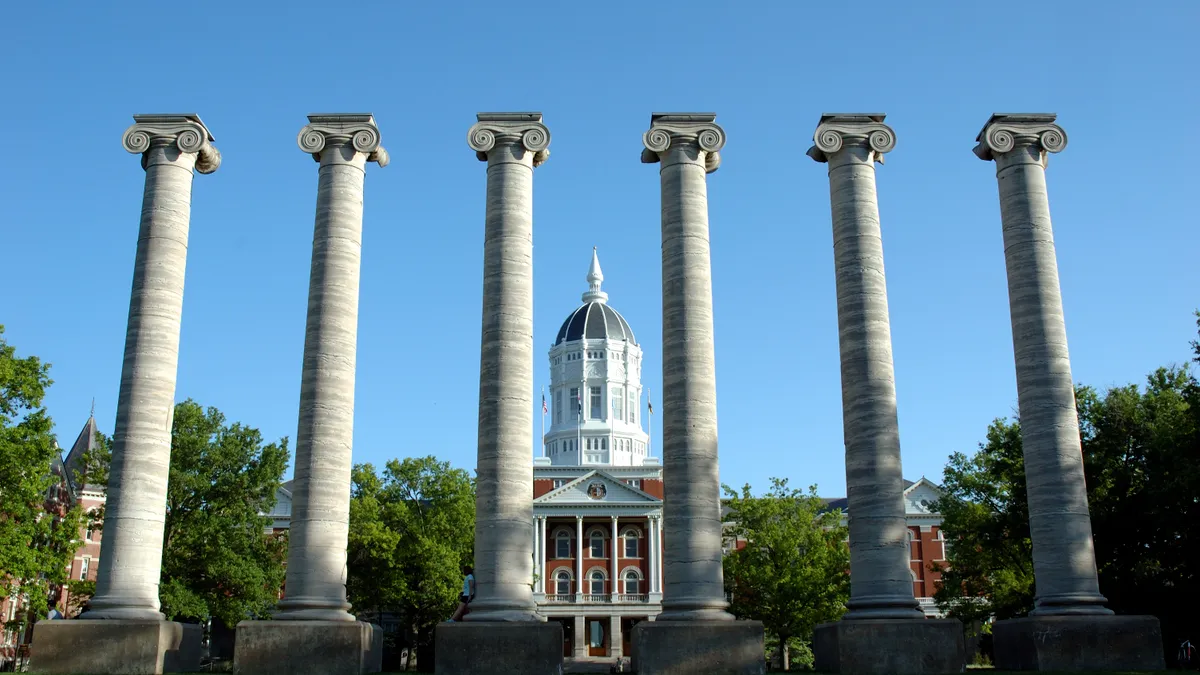Dive Brief:
- The University of Missouri System will no longer use race or ethnicity as a factor in scholarships, following the U.S. Supreme Court ruling against race-conscious admissions practices at Harvard University and the University of North Carolina at Chapel Hill.
- “A small number of our programs and scholarships have used race/ethnicity as a factor for admissions and scholarships,” the system said in a statement Thursday, immediately after the Supreme Court handed down its decision. “Those practices will be discontinued.”
- The system said its universities will honor the financial aid commitments it has already awarded to returning and income students, as those were issued under previous legal interpretations from the Supreme Court and the U.S. Department of Education.
Dive Insight:
When the Supreme Court handed down its ruling against race-conscious admissions practices, legal scholars and higher ed experts said they needed to pore through the 237-page opinion to understand how it applied to campuses.
However, some feared that colleges would overreact by scaling back programs designed to help disadvantaged students.
The University of Missouri System’s decision to end certain scholarships offers an early look at how some public higher education networks will react to the Supreme Court ruling.
Scholarships with a race or ethnicity component across the system's four campuses total about $16.1 million — about 5.4% of the institution’s financial aid budget, spokesperson Christian Basi said via email Friday.
No students who have been awarded these scholarships will see any impact, according to Basi.
Meanwhile, the system is reviewing its various scholarships to determine how to best use the funds.
“For example, one area that was discussed yesterday was adding support to financial aid programs that support those students who are eligible for Pell grants,” Basi said.
The University of Missouri System’s announcement came as the state’s attorney general, Republican Andrew Bailey, demanded the colleges in the state immediately stop considering race as a part of admissions and scholarship decisions.
“All Missouri programs that make admitting decisions by disfavoring individuals based on race — not just college admissions, but also scholarships, employment, law reviews, etc. — must immediately adopt race-blind standards,” Bailey wrote.
In his letter, Bailey also took aim at the test-optional movement.
Colleges abandoned standardized entrance exam requirements en masse when the pandemic forced common testing sites to close.
Since then, many of them remain test-optional. Supporters of the movement say it eliminates testing requirements that favor wealthy applicants who can afford extending tutoring.
Moreover, some research has found ending these requirements can increase the diversity of student bodies. A 2021 study found that making a switch to test-optional admissions at private colleges was linked with modest enrollment bumps among low-income students and those from underrepresented racial and ethnic groups.
“Advocates of race discrimination in college admissions are currently urging schools to abandon reliance on standardized tests and GPAs,” Bailey wrote. “To the extent these policies are designed to evade the clear constitutional prohibition on disfavoring applicants because of race, these policies are unlawful.”















